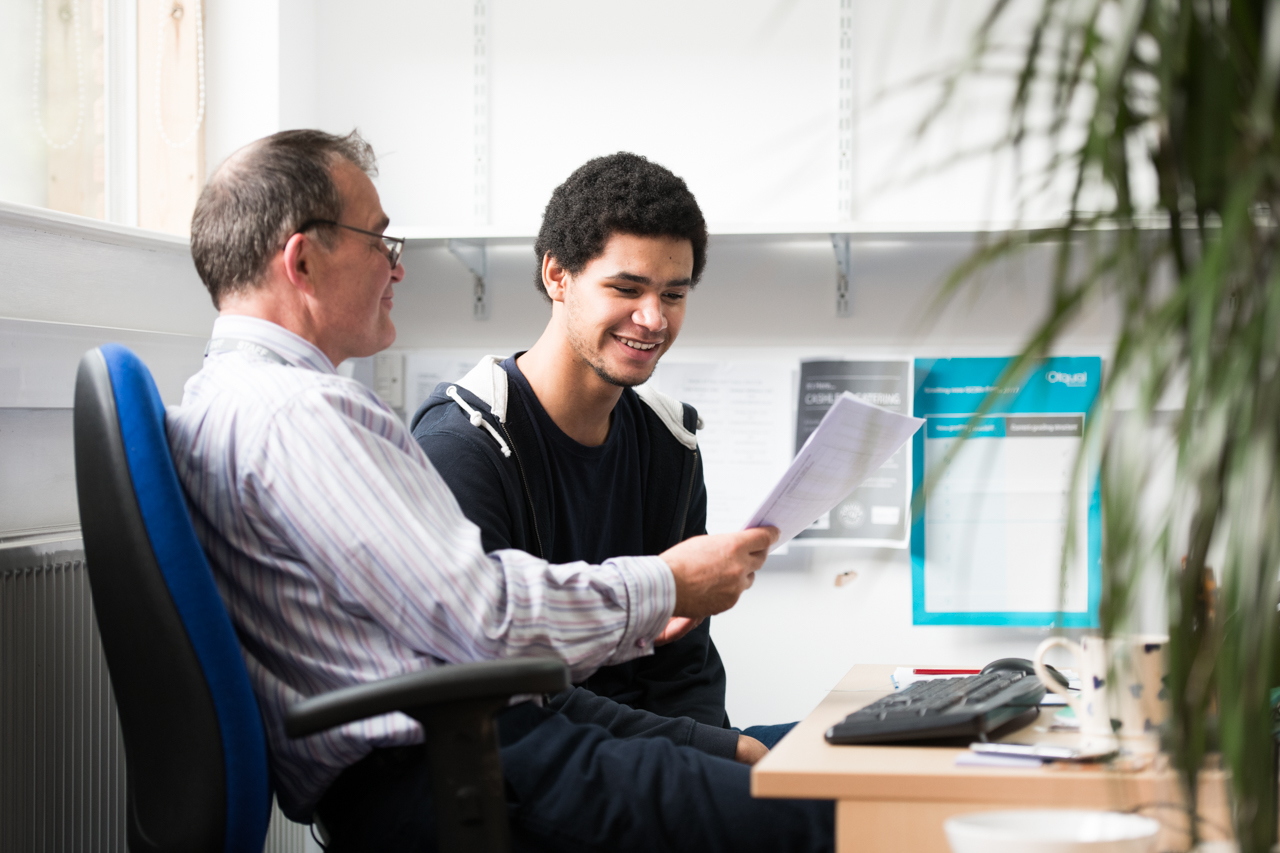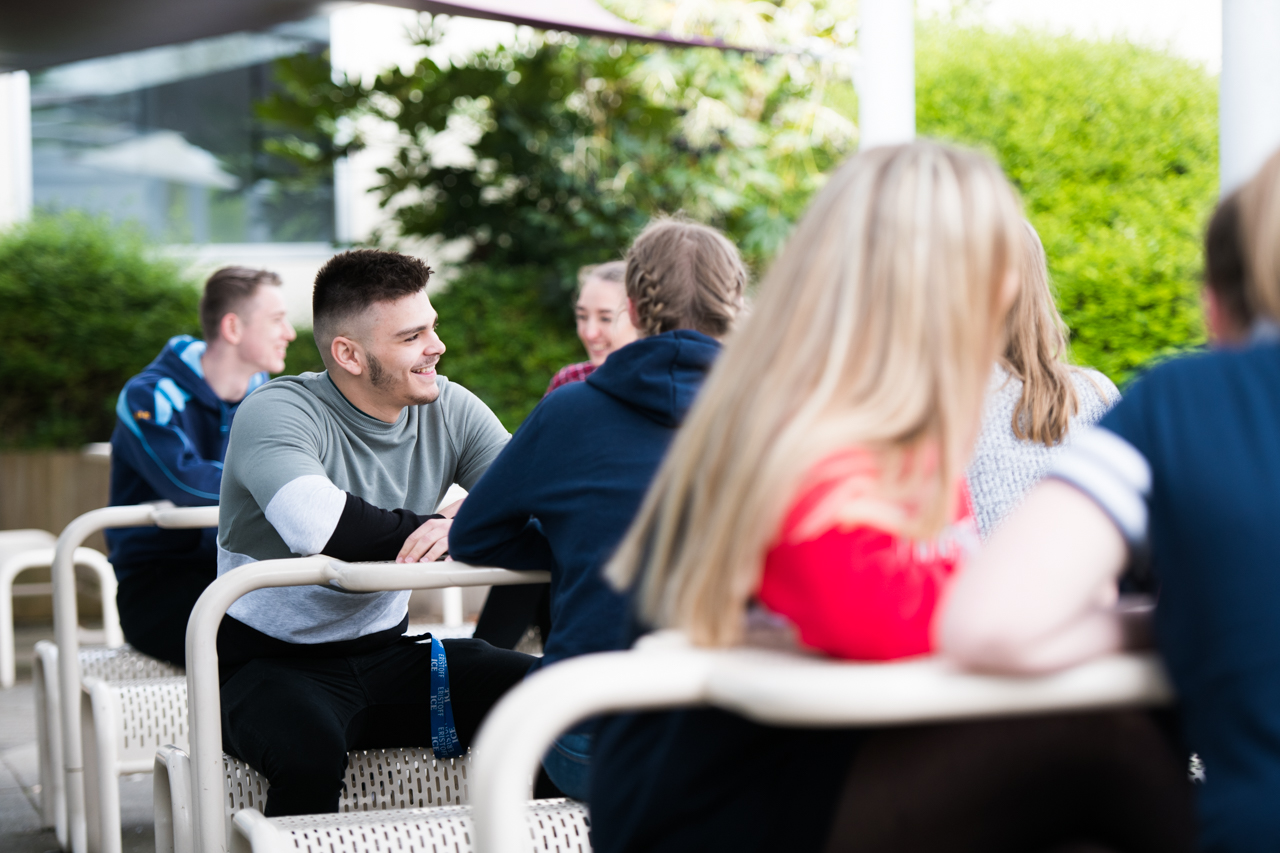Some Advice and Help for Parents
Being a teenager isn’t easy. Hormones account for physiological changes and mood swings. More time is spent with friends than with parents. There are added pressures from media and college.
It is no wonder your teen can seem isolated from you at times but on the next page are some tips for having conversations.
The rest of this booklet has advice and guidance towards support for specific areas of concern.
A website we use and often refer parents to is https://www.minded.org.uk/ There is a useful section for parents and families.
Tips for talking with your teen
1. Have a conversation rather than a lecture. Conversation involves at least two Listen and talk with your teenager rather than talk at.
2. Don’t attack. The conversation will break down if your teenager feels that s/he is feeling accused of something.
3. Show respect for your teenager’s opinions. Teenagers really can talk with you if they feel that their point of view is being listened to.
4. Keep it short and simple. Try to say 50% less if you know that your teenager accuses you of ‘going on’ at them. Remember when you were a teen and your parents lectured at you? Remember thinking, “Will you stop; you’ve made your point!”
5. Be yourself. Don't try to talk like your kids or their friends. You are an adult, so be an adult. Set out fair and consistent ground rules and stick to them.
6. Seize the moment. A spontaneous moment in the car or at home at night when you least expect it and when you're not rushed, can make for some of the warmest, most rewarding conversations. By the same token, give them space and privacy when they need it.
7. Make sure they know they are loved. Be clear that it is the behaviour they are displaying rather than your teen as a person that you are unhappy with.
8. Make time for family time and rest/relaxation. They still need this, despite growing up.
The following video clip gives some really good suggestions for how/where to talk with your teen https://www.youtube.com/watch?v=r_yAtOh3yV0
Friendships
Parents and friends play different roles in a teenager’s life. Parents will influence long term decisions to do with values and morals. Friends are more likely to influence short term choices like appearance and interests. Strong relationships with both friends and parents help teens to grow into well-adjusted adults with strong social skills.
It is normal to ‘fall out’ and for friends to be replaced by new ones. Be there as a support but know that you can’t fix everything. Encourage new activity groups and planning activities such as the cinema, a meal out or a sleepover …and give them the space to do so.
Bullying
Bullying can take several forms; physical or verbal abuse or very commonly via technology ie texting and social media.
Any form of bullying is unacceptable, whether it happens within college hours or outside of them. It is likely to affect self-esteem and confidence and will impact on learning.
If your child is being bullied, encourage them to speak to their tutor or a member of the safeguarding team.
https://www.childline.org.uk/info-advice/bullying-abuse-safety/types-bullying/
E-safety
Parents often think teenagers today are light-years ahead when it comes to using technology. Young people use their phones and devices so quickly and naturally that it’s easy to believe they know all there is to know about the online world. However, teenagers often have a lot to learn when it comes to staying safe online and knowing what to do if problems arise.
We teach e-safety including the dangers of sexting (see below) within the tutorial programme. All students are automatically bound by the terms of an Acceptable Use Policy (AUP). We monitor the use of IT resources to ensure that the AUP is not broken and that students are safe online.
Online issues can be reported to your child’s tutor or Head of Year. More information can be found at; https://www.thinkuknow.co.uk where there are sections for young people aged 14+ and for parents.
Social media
Whilst social media is seen by many as an essential part of everyday life, it is not without its risks.
The following site https://www.net-aware.org.uk/ has advice for parents including the most frequently used social media sites, games and how to keep your teen safe online.
Sexting
Sexting is sending or receiving sexually explicit images, messages or videos. It is increasingly common amongst young people but leaves them vulnerable to blackmail and bullying as they have no control over the image/message once it is sent.
If your child is worried about something they have sent or received, encourage them to speak to their tutor or Head of Year.
For more information on sexting see https://www.childline.org.uk/info-advice/bullying-abuse-safety/online-mobile-safety/sexting/
Child Sexual Exploitation (CSE)
CSE is a type of abuse. Young people in exploitive situations or relationships receive gifts, money or affection as a result of performing sexual activities or others performing sexual activities on them. The young person is usually tricked into believing they are in a loving, consensual relationship. They might be invited to parties and given drugs or alcohol. They can also be groomed or exploited online.
This link gives information on spotting the signs that your child may be being groomed or exploited and what to do if you are worried.
https://www.nspcc.org.uk/preventing-abuse/child-abuse-and-neglect/child-sexual-exploitation
Controlling relationships
Do you know if your teen is in an abusive relationship? While we think that our children could never be affected, the truth is that abuse occurs surprisingly frequently in teenage relationships. It is often hidden because teenagers have little experience of relationships or may have ‘romantic’ views of love. It is important to talk to your teen about what constitutes a healthy relationship.
Warning signs can be; isolation from usual friends, constant checking of phone, being withdrawn or angry/irritable, changing appearance, making excuses for the boy/girlfriend, absence from college, self harm.
‘Healthy relationships’ is taught as part of the tutorial programme and you can access more help and advice at http://www.westmerciawomensaid.org/crush . There are Crush groups across Worcestershire.
Stress and Anxiety
Just like adults, young people can be worried or anxious at times. Anxiety starts to become a problem when it gets in the way of their day to day life.
Some common signs are;
- becoming irritable or tearful
- difficulty sleeping or eating
- lacking the confidence to try new things or seem unable to face simple, everyday challenges
- finding it hard to concentrate
- having negative thoughts going round and round their head, or keep thinking that bad things are going to happen
- start avoiding everyday activities, such as seeing friends, going out in public or attending college
Parents can help by being available to talk and helping their children to develop the skills and strategies to cope. See the ‘Little Book of Stress Relief’ in the ‘Parent’ section of our website for practical ways to ease anxiety.
There is counselling available at college 5 days a week and we offer extra drop in sessions in the run up to and during exam time.
More information can be found at https://www.nhs.uk/conditions/stress-anxiety-depression/anxiety-in-children/
www.kooth.com (online counselling for young people)
Self harm
Self harm can take several forms including; cutting, scratching, burning, bruising, hair pulling, abuse of alcohol or drugs. It is not usually a way of attention seeking, more a release of emotions and a way of coping. The physical pain of self harm may be easier to deal with than the emotional pain that is behind it.
Self harming can become addictive so the quicker you can spot it and offer support, the better. Speak to your child’s tutor if you think they may be self-harming so we can work together to support them.
More information can be found at https://www.mumsnet.com/teenagers/teenage-self-harm
Suicidal thoughts
Suicidal feelings are when a normal feeling of being very down becomes so deep and intense that the only solution seems to be to end your life.
This link gives some information on how to support someone who may be suicidal https://www.rethink.org/carers-family-friends/what-you-need-to-know/suicidal-thoughts-how-to-support-someone/help
Young Minds also has a section for parents https://youngminds.org.uk/find-help/feelings-and-symptoms/suicidal-feelings/
Try to get your child to the GP who can assess and potentially make a referral to the Child and Adolescent Mental Health Service (CAMHs). Speak to your child’s tutor or Head of Year about support at college (see also list of contacts at the end of this booklet).
Smoking
The Law is clear that you must be over 18 to buy tobacco products in the UK. We ask that all students refrain from smoking 9inc e-cigarettes) on College premises or the immediate surrounding area inc Spetchley road, unless they are in the smoking toleration zone and are registered to use it. The College nurse can offer advice and support on how to stop smoking.
For more information on how to quit smoking see https://www.nhs.uk/live-well/quit-smoking/quitting-smoking-under-18s-guide/
Alcohol/drugs
College has a zero tolerance policy on the use, procession and distribution of illicit drugs, misuse of legal drugs and consumption of alcohol. This also includes substances consumed offsite which may affect a student’s ability to learn. We will carry out random searches for such substances to keep the student community safe.
New drugs are appearing all the time and it is unknown what potentially lethal substances are in them. We teach about the effects of taking drugs and alcohol within the tutorial programme and encourage students to speak to their tutor or the college nurse if they need help to stop taking drugs.
Advice for parents is to understand the facts about drugs so that you can talk to your child about these. A good website to use is http://www.talktofrank.com/
If you know that your child may be using drugs, the organisation Swanswell based in Worcester will be a good contact for help https://www.swanswell.org/
Who can I go to/where can I access more help at college?
For more information about anything in this booklet;
Speak to the tutor by contacting main reception on 01905 362600
Contact the Head of Year
- Julie Ferman ferman@wsfc.ac.uk
- Graham Williams williams@wsfc.ac.uk
Your teen may book an appointment to see a College counsellor in student services
Contact a member of the safeguarding team by contacting main reception on 01905 362600
- Ruth Scotson (Deputy Principal)
- Heads of Year
- Emma Bridges (Acting Learning Support Manager)
Speak to teachers
Your teen can also access the College ‘Moodle’ pages for more information (Student Services and Pastoral).
…and finally
Some useful websites/contacts;
Worcestershire Family Front Door 01905 822666 for support with:
Relationship difficulties at home
Behaviour: home/community
Attendance at educational setting
Drug/alcohol issues (young person)
Drug/alcohol issues (parent/carer)
Not in education, employment or training (NEET)
Concerns regarding emotional wellbeing (child/young person)
Parental disability Risk Taking Behaviour
Domestic abuse Parenting
Housing/Economical issues Mental health
Teenage pregnancy Child/Young Person disability
Family mediation and temporary accommodation for young people
https://www.wyreforestnightstop.org.uk/how-we-help/family-mediation
The Family Nurse Partnership Programme works with young Mums from early pregnancy up until the child is two years 01905 798489
Doc Ready – getting ready to see the doctor for the first time to discuss mental health
http://www.docready.org/#/home
Stay-Alive app A mobile app for those at risk of suicide and people worried about someone
http://www.prevent-suicide.org.uk/
www.papyrus-uk.org a website for those at risk of suicide and people worried about them








